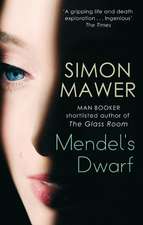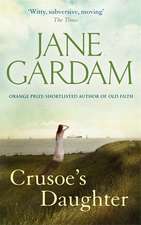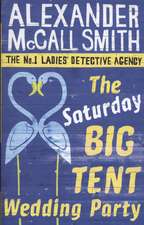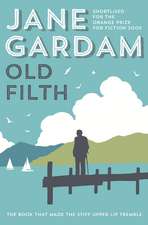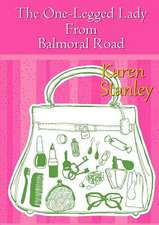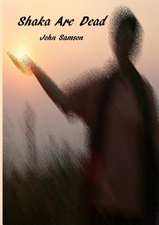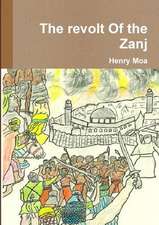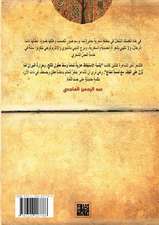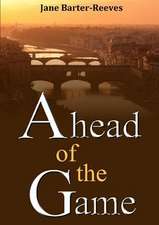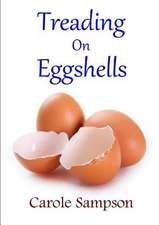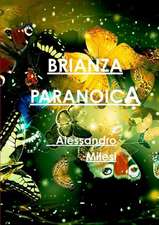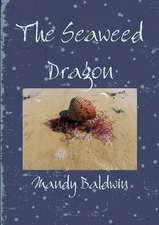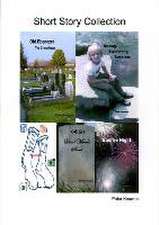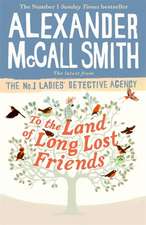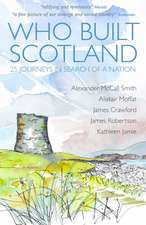Friends, Lovers, Chocolate: Isabel Dalhousie Novels
Autor Alexander McCall Smithen Limba Engleză Paperback – 7 feb 2013
| Toate formatele și edițiile | Preț | Express |
|---|---|---|
| Paperback (2) | 48.32 lei 3-5 săpt. | +24.08 lei 5-11 zile |
| Little Brown Book Group – 7 feb 2013 | 48.32 lei 3-5 săpt. | +24.08 lei 5-11 zile |
| Anchor Books – 31 iul 2006 | 109.95 lei 3-5 săpt. |
Preț: 48.32 lei
Preț vechi: 63.47 lei
-24% Nou
Puncte Express: 72
Preț estimativ în valută:
9.25€ • 9.62$ • 7.63£
9.25€ • 9.62$ • 7.63£
Carte disponibilă
Livrare economică 24 martie-07 aprilie
Livrare express 08-14 martie pentru 34.07 lei
Preluare comenzi: 021 569.72.76
Specificații
ISBN-13: 9780349139425
ISBN-10: 0349139423
Pagini: 304
Dimensiuni: 130 x 196 x 21 mm
Greutate: 0.22 kg
Editura: Little Brown Book Group
Seria Isabel Dalhousie Novels
ISBN-10: 0349139423
Pagini: 304
Dimensiuni: 130 x 196 x 21 mm
Greutate: 0.22 kg
Editura: Little Brown Book Group
Seria Isabel Dalhousie Novels
Recenzii
“A completely absorbing, profound, funny, sad, and moving book that will captivate [and] enthrall.”–Detroit Free Press“Witty, ruminative and wise.” –The Times-Picayune “Enchanting. . . . Delicious mental comfort food. . . . The ‘intimate’ city of Edinburgh is an appealing character in its own right.”–Los Angeles Times“Isabel Dalhousie . . . who made such a smart impression in . . . The Sunday Philosophy Club, returns in Friends, Lovers, Chocolate to further advance the cause of brainy, inquisitive older women who just can’t resist an intellectual puzzle.”–The New York Times Book Review
Notă biografică
Alexander McCall Smith is the author of the international phenomenon The No. 1 Ladies' Detective Agency series and of The Sunday Philosophy Club series. He was born in what is now known as Zimbabwe and was a law professor at the University of Botswana and at Edinburgh University. He lives in Scotland. In his spare time he is a bassoonist in the RTO (Really Terrible Orchestra).
Extras
Chapter one
The man in the brown Harris tweed overcoat—double-breasted with three small leather-covered buttons on the cuffs—made his way slowly along the street that led down the spine of Edinburgh. He was aware of the seagulls which had drifted in from the shore and which were swooping down onto the cobblestones, picking up fragments dropped by somebody who had been careless with a fish. Their mews were the loudest sound in the street at that moment, as there was little traffic and the city was unusually quiet. It was October, it was mid-morning, and there were few people about. A boy on the other side of the road, scruffy and tousle-haired, was leading a dog along with a makeshift leash—a length of string. The dog, a small Scottish terrier, seemed unwilling to follow the boy and glanced for a moment at the man as if imploring him to intervene to stop the tugging and the pulling. There must be a saint for such dogs, thought the man; a saint for such dogs in their small prisons.
The man reached the St. Mary’s Street crossroads. On the corner on his right was a pub, the World’s End, a place of resort for fiddlers and singers; on his left, Jeffrey Street curved round and dipped under the great arch of the North Bridge. Through the gap in the buildings, he could see the flags on top of the Balmoral Hotel: the white-on-blue cross of the Saltire, the Scottish flag, the familiar diagonal stripes of the Union Jack. There was a stiff breeze from the north, from Fife, which made the flags stand out from their poles with pride, like the flags on the prow of a ship ploughing into the wind. And that, he thought, was what Scotland was like: a small vessel pointed out to sea, a small vessel buffeted by the wind.
He crossed the street and continued down the hill. He walked past a fishmonger, with its gilt fish sign suspended over the street, and the entrance to a close, one of those small stone passages that ran off the street underneath the tenements. And then he was where he wanted to be, outside the Canongate Kirk, the high-gabled church set just a few paces off the High Street. At the top of the gable, stark against the light blue of the sky, the arms of the kirk, a stag’s antlers, gilded, against the background of a similarly golden cross.
He entered the gate and looked up. One might be in Holland, he thought, with that gable; but there were too many reminders of Scotland—the wind, the sky, the grey stone. And there was what he had come to see, the stone which he visited every year on this day, this day when the poet had died at the age of twenty-four. He walked across the grass towards the stone, its shape reflecting the gable of the kirk, its lettering still clear after two hundred years. Robert Burns himself had paid for this stone to be erected, in homage to his brother in the muse, and had written the lines of its inscription: This simple stone directs Pale Scotia’s way/To pour her sorrows o’er her poet’s dust.
He stood quite still. There were others who could be visited here. Adam Smith, whose days had been filled with thoughts of markets and economics and who had coined an entire science, had his stone here, more impressive than this, more ornate; but this was the one that made one weep.
He reached into a pocket of his overcoat and took out a small black notebook of the sort that used to advertise itself as waterproof. Opening it, he read the lines that he had written out himself, copied from a collection of Robert Garioch’s poems. He read aloud, but in a low voice, although there was nobody present save for him and the dead:
Canongait kirkyaird in the failing year
Is auld and grey, the wee roseirs are bare,
Five gulls leem white agin the dirty air.
Why are they here? There’s naething for them here
Why are we here oursels?
Yes, he thought. Why am I here myself? Because I admire this man, this Robert Fergusson, who wrote such beautiful words in the few years given him, and because at least somebody should remember and come here on this day each year. And this, he told himself, was the last time that he would be able to do this. This was his final visit. If their predictions were correct, and unless something turned up, which he thought was unlikely, this was the last of his pilgrimages.
He looked down at his notebook again. He continued to read out loud. The chiselled Scots words were taken up by the wind and carried away:
Strang, present dool
Ruggs at my hairt. Lichtlie this gin ye daur:
Here Robert Burns knelt and kissed the mool.
Strong, present sorrow
Tugs at my heart. Treat this lightly if you dare:
Here Robert Burns knelt and kissed the soil.
He took a step back. There was nobody there to observe the tears which had come to his eyes, but he wiped them away in embarrassment. Strang, present dool. Yes. And then he nodded towards the stone and turned round, and that was when the woman came running up the path. He saw her almost trip as the heel of a shoe caught in a crack between two paving stones, and he cried out. But she recovered herself and came on towards him, waving her hands.
“Ian. Ian.” She was breathless. And he knew immediately what news she had brought him, and he looked at her gravely. She said, “Yes.” And then she smiled, and leant forward to embrace him.
“When?” he asked, stuffing the notebook back into his pocket.
“Right away,” she said. “Now. Right now. They’ll take you down there straightaway.”
They began to walk back along the path, away from the stone. He had been warned not to run, and could not, as he would rapidly become breathless. But he could walk quite fast on the flat, and they were soon back at the gate to the kirk, where the black taxi was waiting, ready to take them.
“Whatever happens,” he said as they climbed into the taxi, “come back to this place for me. It’s the one thing I do every year. On this day.”
“You’ll be back next year,” she said, reaching out to take his hand.
On the other side of Edinburgh, in another season, Cat, an attractive young woman in her mid-twenties, stood at Isabel Dalhousie’s front door, her finger poised over the bell. She gazed at the stonework. She noticed that in parts the discoloration was becoming more pronounced. Above the triangular gable of her aunt’s bedroom window, the stone was flaking slightly, and a patch had fallen off here and there, like a ripened scab, exposing fresh skin below. This slow decline had its own charms; a house, like anything else, should not be denied the dignity of natural ageing—within reason, of course.
For the most part, the house was in good order; a discreet and sympathetic house, in spite of its size. And it was known, too, for its hospitality. Everyone who called there—irrespective of their mission—would be courteously received and offered, if the time was appropriate, a glass of dry white wine in spring and summer and red in autumn and winter. They would then be listened to, again with courtesy, for Isabel believed in giv- ing moral attention to everyone. This made her profoundly egalitarian, though not in the non-discriminating sense of many contemporary egalitarians, who sometimes ignore the real moral differences between people (good and evil are not the same, Isabel would say). She felt uncomfortable with moral relativists and their penchant for non-judgementalism. But of course we must be judgemental, she said, when there is something to be judged.
Isabel had studied philosophy and had a part-time job as general editor of the Review of Applied Ethics. It was not a demanding job in terms of the time it required, and it was badly paid; in fact, at Isabel’s own suggestion, rising production costs had been partly offset by a cut in her own salary. Not that payment mattered; her share of the Louisiana and Gulf Land Company, left to her by her mother—her sainted American mother, as she called her—provided more than she could possibly need. Isabel was, in fact, wealthy, although that was a word that she did not like to use, especially of herself. She was indifferent to material wealth, although she was attentive to what she described, with characteristic modesty, as her minor projects of giving (which were actually very generous).
“And what are these projects?” Cat had once asked.
Isabel looked embarrassed. “Charitable ones, I suppose. Or eleemosynary if you prefer long words. Nice word that—eleemosynary . . . But I don’t normally talk about it.”
Cat frowned. There were things about her aunt that puzzled her. If one gave to charity, then why not mention it?
“One must be discreet,” Isabel continued. She was not one for circumlocution, but she believed that one should never refer to one’s own good works. A good work, once drawn at- tention to by its author, inevitably became an exercise in self-congratulation. That was what was wrong with the lists of names of donors in the opera programmes. Would they have given if their generosity was not going to be recorded in the programme? Isabel thought that in many cases they would not. Of course, if the only way one could raise money for the arts was through appealing to vanity, then it was probably worth doing. But her own name never appeared in such lists, a fact which had not gone unnoticed in Edinburgh.
“She’s mean,” whispered some. “She gives nothing away.”
They were wrong, of course, as the uncharitable so often are. In one year, Isabel, unrecorded by name in any programme and amongst numerous other donations, had given eight thousand pounds to Scottish Opera: three thousand towards a production of Hansel and Gretel, and five thousand to help secure a fine Italian tenor for a Cavalleria Rusticana performed in the ill-fitting costumes of nineteen-thirties Italy, complete with brown-shirted Fascisti in the chorus.
From the Hardcover edition.
The man in the brown Harris tweed overcoat—double-breasted with three small leather-covered buttons on the cuffs—made his way slowly along the street that led down the spine of Edinburgh. He was aware of the seagulls which had drifted in from the shore and which were swooping down onto the cobblestones, picking up fragments dropped by somebody who had been careless with a fish. Their mews were the loudest sound in the street at that moment, as there was little traffic and the city was unusually quiet. It was October, it was mid-morning, and there were few people about. A boy on the other side of the road, scruffy and tousle-haired, was leading a dog along with a makeshift leash—a length of string. The dog, a small Scottish terrier, seemed unwilling to follow the boy and glanced for a moment at the man as if imploring him to intervene to stop the tugging and the pulling. There must be a saint for such dogs, thought the man; a saint for such dogs in their small prisons.
The man reached the St. Mary’s Street crossroads. On the corner on his right was a pub, the World’s End, a place of resort for fiddlers and singers; on his left, Jeffrey Street curved round and dipped under the great arch of the North Bridge. Through the gap in the buildings, he could see the flags on top of the Balmoral Hotel: the white-on-blue cross of the Saltire, the Scottish flag, the familiar diagonal stripes of the Union Jack. There was a stiff breeze from the north, from Fife, which made the flags stand out from their poles with pride, like the flags on the prow of a ship ploughing into the wind. And that, he thought, was what Scotland was like: a small vessel pointed out to sea, a small vessel buffeted by the wind.
He crossed the street and continued down the hill. He walked past a fishmonger, with its gilt fish sign suspended over the street, and the entrance to a close, one of those small stone passages that ran off the street underneath the tenements. And then he was where he wanted to be, outside the Canongate Kirk, the high-gabled church set just a few paces off the High Street. At the top of the gable, stark against the light blue of the sky, the arms of the kirk, a stag’s antlers, gilded, against the background of a similarly golden cross.
He entered the gate and looked up. One might be in Holland, he thought, with that gable; but there were too many reminders of Scotland—the wind, the sky, the grey stone. And there was what he had come to see, the stone which he visited every year on this day, this day when the poet had died at the age of twenty-four. He walked across the grass towards the stone, its shape reflecting the gable of the kirk, its lettering still clear after two hundred years. Robert Burns himself had paid for this stone to be erected, in homage to his brother in the muse, and had written the lines of its inscription: This simple stone directs Pale Scotia’s way/To pour her sorrows o’er her poet’s dust.
He stood quite still. There were others who could be visited here. Adam Smith, whose days had been filled with thoughts of markets and economics and who had coined an entire science, had his stone here, more impressive than this, more ornate; but this was the one that made one weep.
He reached into a pocket of his overcoat and took out a small black notebook of the sort that used to advertise itself as waterproof. Opening it, he read the lines that he had written out himself, copied from a collection of Robert Garioch’s poems. He read aloud, but in a low voice, although there was nobody present save for him and the dead:
Canongait kirkyaird in the failing year
Is auld and grey, the wee roseirs are bare,
Five gulls leem white agin the dirty air.
Why are they here? There’s naething for them here
Why are we here oursels?
Yes, he thought. Why am I here myself? Because I admire this man, this Robert Fergusson, who wrote such beautiful words in the few years given him, and because at least somebody should remember and come here on this day each year. And this, he told himself, was the last time that he would be able to do this. This was his final visit. If their predictions were correct, and unless something turned up, which he thought was unlikely, this was the last of his pilgrimages.
He looked down at his notebook again. He continued to read out loud. The chiselled Scots words were taken up by the wind and carried away:
Strang, present dool
Ruggs at my hairt. Lichtlie this gin ye daur:
Here Robert Burns knelt and kissed the mool.
Strong, present sorrow
Tugs at my heart. Treat this lightly if you dare:
Here Robert Burns knelt and kissed the soil.
He took a step back. There was nobody there to observe the tears which had come to his eyes, but he wiped them away in embarrassment. Strang, present dool. Yes. And then he nodded towards the stone and turned round, and that was when the woman came running up the path. He saw her almost trip as the heel of a shoe caught in a crack between two paving stones, and he cried out. But she recovered herself and came on towards him, waving her hands.
“Ian. Ian.” She was breathless. And he knew immediately what news she had brought him, and he looked at her gravely. She said, “Yes.” And then she smiled, and leant forward to embrace him.
“When?” he asked, stuffing the notebook back into his pocket.
“Right away,” she said. “Now. Right now. They’ll take you down there straightaway.”
They began to walk back along the path, away from the stone. He had been warned not to run, and could not, as he would rapidly become breathless. But he could walk quite fast on the flat, and they were soon back at the gate to the kirk, where the black taxi was waiting, ready to take them.
“Whatever happens,” he said as they climbed into the taxi, “come back to this place for me. It’s the one thing I do every year. On this day.”
“You’ll be back next year,” she said, reaching out to take his hand.
On the other side of Edinburgh, in another season, Cat, an attractive young woman in her mid-twenties, stood at Isabel Dalhousie’s front door, her finger poised over the bell. She gazed at the stonework. She noticed that in parts the discoloration was becoming more pronounced. Above the triangular gable of her aunt’s bedroom window, the stone was flaking slightly, and a patch had fallen off here and there, like a ripened scab, exposing fresh skin below. This slow decline had its own charms; a house, like anything else, should not be denied the dignity of natural ageing—within reason, of course.
For the most part, the house was in good order; a discreet and sympathetic house, in spite of its size. And it was known, too, for its hospitality. Everyone who called there—irrespective of their mission—would be courteously received and offered, if the time was appropriate, a glass of dry white wine in spring and summer and red in autumn and winter. They would then be listened to, again with courtesy, for Isabel believed in giv- ing moral attention to everyone. This made her profoundly egalitarian, though not in the non-discriminating sense of many contemporary egalitarians, who sometimes ignore the real moral differences between people (good and evil are not the same, Isabel would say). She felt uncomfortable with moral relativists and their penchant for non-judgementalism. But of course we must be judgemental, she said, when there is something to be judged.
Isabel had studied philosophy and had a part-time job as general editor of the Review of Applied Ethics. It was not a demanding job in terms of the time it required, and it was badly paid; in fact, at Isabel’s own suggestion, rising production costs had been partly offset by a cut in her own salary. Not that payment mattered; her share of the Louisiana and Gulf Land Company, left to her by her mother—her sainted American mother, as she called her—provided more than she could possibly need. Isabel was, in fact, wealthy, although that was a word that she did not like to use, especially of herself. She was indifferent to material wealth, although she was attentive to what she described, with characteristic modesty, as her minor projects of giving (which were actually very generous).
“And what are these projects?” Cat had once asked.
Isabel looked embarrassed. “Charitable ones, I suppose. Or eleemosynary if you prefer long words. Nice word that—eleemosynary . . . But I don’t normally talk about it.”
Cat frowned. There were things about her aunt that puzzled her. If one gave to charity, then why not mention it?
“One must be discreet,” Isabel continued. She was not one for circumlocution, but she believed that one should never refer to one’s own good works. A good work, once drawn at- tention to by its author, inevitably became an exercise in self-congratulation. That was what was wrong with the lists of names of donors in the opera programmes. Would they have given if their generosity was not going to be recorded in the programme? Isabel thought that in many cases they would not. Of course, if the only way one could raise money for the arts was through appealing to vanity, then it was probably worth doing. But her own name never appeared in such lists, a fact which had not gone unnoticed in Edinburgh.
“She’s mean,” whispered some. “She gives nothing away.”
They were wrong, of course, as the uncharitable so often are. In one year, Isabel, unrecorded by name in any programme and amongst numerous other donations, had given eight thousand pounds to Scottish Opera: three thousand towards a production of Hansel and Gretel, and five thousand to help secure a fine Italian tenor for a Cavalleria Rusticana performed in the ill-fitting costumes of nineteen-thirties Italy, complete with brown-shirted Fascisti in the chorus.
From the Hardcover edition.
















